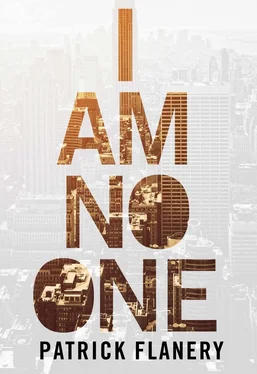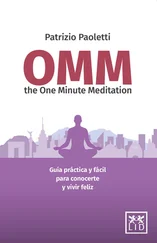Having watched both films and feeling that slight numbness that comes from too much exposure to a screen, I went to bed to read a collection of essays by the late historian Tony Judt, someone who was never quite a friend although we knew each other, and I found that within half an hour of climbing under the duvet and expecting sleep would come after I had read one or two short essays I was in fact wide awake, so much so that I finished the book. Although by then it was after midnight and I knew I had the appointment with the memory specialist, Dr. Sebastian, the next morning, I got out of bed and went through to the living room, found myself standing at the window, the blinds open, in my T-shirt and shorts, feeling a draft coming in around the expanse of glass. Because the room was dark I could see clearly down to Houston Street and I thought, for a moment, that someone was standing there watching me, or had perhaps already been standing there as if he were waiting for me to come to the window and when he saw that I had noticed him he immediately began walking towards Broadway. Perhaps I was already edging into unconsciousness, but my mind both registered and did not register the event of this acknowledgment, the nod I think I made and his slightly flustered forward movement. Part of my mind thought it was nothing more than coincidence, that he had not been looking up but instead consulting the screen of his smartphone, reading an email or checking directions. I was certain, however, of a reciprocal acknowledgment, that by nodding I was telling him I saw him watching me, the two of us watching each other: Hello, hey you, my watcher, I can see you! I know what you’re doing!
There was something about the encounter that made me double-check the locks on the door to the apartment and when I returned to bed I also locked the bedroom door, almost as a reflex. One would think I must have been suffering from paranoia, locking myself in, behind two doors, in a building protected by a doorman and CCTV cameras. If there were a break-in, campus security and even the NYPD would respond and all would be well. Nonetheless, I lay in bed thinking of that man’s dark shape on the street, of the head cocked in my direction and the frisson of communication I felt when my nod seemed to act as a trigger for his movement. Who? Who would be watching me?
Though at the time I did not quite understand why it should be so, the exchange with the man on the street made me begin thinking about all that had happened so recently in Oxford. Perhaps the effects of the complicated life I led during my later years in Britain had somehow followed me across the Atlantic.
Now, as the evidence grows around me, that seems all but certain.
I should have recognized the address when Peter gave it to me but, like other bits of information in my life, I had blocked out the associations that might have been conjured by West End Avenue and was surprised when I arrived there on Monday morning to find Dr. Sebastian’s office just around the corner from the apartment where I last lived in New York, with Susan and Meredith, on the top floor of a converted brownstone, a school across the street and the sound of garbage trucks often waking me on a Saturday morning before dawn.
I had not been back to 75th Street in more than a decade, not since the summer when I moved out of the apartment and, for a brief period, up to my mother’s house in Rhinebeck, before the subsequent and more significant migration to Oxford. When I moved out of the family home I conceded nearly all the furniture, which is also why I took not so much as a lamp or end table across the ocean. At the time I tried half-heartedly to fight Susan for the sleek four-slice toaster I had bought only a few months earlier because I was tired of making toast in the oven, but when I saw Meredith’s face fall, it seemed as though losing the toaster might just be too much to bear, that losing her father and the possibility of toast when she wanted it would push her into juvenile delinquency in a way that the more serious ructions on their own might not. So I left home only with clothes and books and photographs and the art that was indisputably mine, some of it acquired before Susan and I were married, much of it — including an early Neo Rauch bought before his prices rose beyond my means — purchased with money left to me by my father and thus, I argued, not a matter for negotiation. The art was my inheritance in a real sense, although some of that money had also helped us buy the apartment, which I relinquished to Susan (although really, I convinced myself, to Meredith) with no more argument than when I abandoned my toaster and my favorite floor lamp and even the black acoustic guitar my parents gave me in high school and which Meredith had inexplicably named Bobo, taking it to play with her friends when they congregated on the promenade in Riverside Park, channeling some kind of nostalgic hippy vibe Susan and I had both been too young to impart.
That Monday morning in November I was too early to spend half an hour reading magazines in Dr. Sebastian’s waiting room, so I walked down 75th Street past the building where I knew Susan still lived. Knowing she was on sabbatical, and likely at home, I nearly pressed the buzzer, until I thought better of it, certain she would not be in the mood to speak to her ex-husband. In fairness to Susan, we have managed to remain friends since the divorce, and in many ways I feel closer to her than anyone other than Meredith, who has a fairly difficult relationship with her mother. After Meredith graduated from high school and moved to Boston for college, even though I was in Oxford, Susan would phone me to find out how our daughter was doing because at the time the two had still not recovered from several fallings out over high school boyfriends and Meredith’s decision to major in Art History. Susan worried this was an impractical choice and felt there was no need for Meredith to decide even before she had started college what she might want to do. In fact, Susan believed that Meredith should major in Business, and things between them only began to improve when a Masters in Arts Administration eventually capped off that BA in Art History. This suggested to Susan that there was a practical streak in the daughter who seemed so often to live in a world of the imagination. ‘What else would you expect from an economist?’ I once said to Meredith. ‘Your mother thinks in terms of logic and illogic, equations, balances, expectations, futures. Think of it this way: she is only concerned about your future.’ Meredith, I remember, had grimaced: ‘And not about my happiness.’
It was too cold to walk to Riverside Park that morning a few weeks ago, but I went anyway, pulling the coat closer around my neck as I passed the enclosed dog run where I had spent so many early mornings and late evenings while Lotte, our dog, did her business, her habits often forcing me into conversations with people I would not otherwise have met, even on one occasion the actress Kathleen Turner. We dog-run regulars tried to act as if Ms. Turner was no one in particular, to give her space, I suppose, although we all must have felt the frisson of a celebrity in our midst, being able to observe her in ordinary life, a person of more than ordinary presence, walking her dog and being normal in a way that looked like the enactment of a borrowed identity. I could not help thinking of the performance I had seen her give a few years earlier in Indiscretions , based on Cocteau’s Les Parents terribles , in which she played Yvonne, the more-than-half-mad mother to Michel, played in that production by Jude Law, then a virtual unknown who caused a sensation by getting out of a bath in the second act and standing with great naturalness, wet and nude, on the stage. It was a show about different forms of nakedness, most of them psychological and emotional, and Turner, though she remained clothed, was as naked as anyone on that extraordinary set. The pleasure for the audience, even more acutely than with most plays, came from engaging in a communal act of voyeurism, enjoying the spectacle of one family parading its psychic wounds. At the end of the play the set split apart, walls and ceiling flying away from one another, penetrated by a searchingly brilliant light, which struck me then as a symbol or stand-in for the audience’s own collective act of observation: staring with such intensity that by our combined force of scrutiny we tore the characters’ home apart at its seams.
Читать дальше












